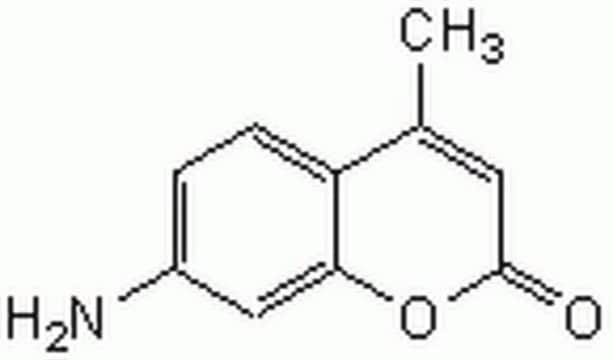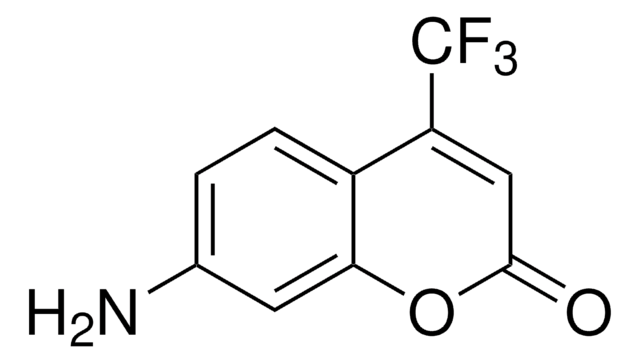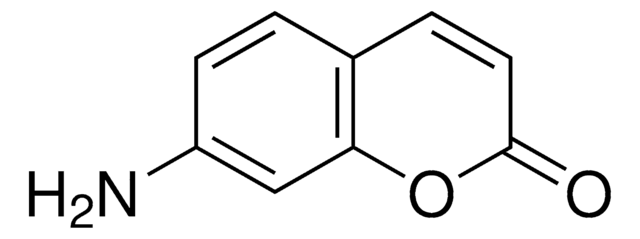08445
7-Amino-4-methyl-3-coumarinylacetic acid
BioReagent, suitable for fluorescence, ~90% (HPLC)
Synonym(s):
2H-1-Benzopyran-3-acetic acid, AMCA-H, Aminomethyl coumarin acetic acid
About This Item
Recommended Products
product line
BioReagent
Quality Level
Assay
~90% (HPLC)
form
powder
solubility
DMF: soluble
DMSO: soluble
aqueous base: soluble
fluorescence
λex 350 nm; λem 433 nm in methanol
suitability
suitable for fluorescence
SMILES string
CC1=C(CC(O)=O)C(=O)Oc2cc(N)ccc12
InChI
1S/C12H11NO4/c1-6-8-3-2-7(13)4-10(8)17-12(16)9(6)5-11(14)15/h2-4H,5,13H2,1H3,(H,14,15)
InChI key
QEQDLKUMPUDNPG-UHFFFAOYSA-N
Application
Packaging
Other Notes
Signal Word
Warning
Hazard Statements
Precautionary Statements
Hazard Classifications
Eye Irrit. 2 - Skin Irrit. 2 - STOT SE 3
Target Organs
Respiratory system
Storage Class Code
11 - Combustible Solids
WGK
WGK 3
Flash Point(F)
Not applicable
Flash Point(C)
Not applicable
Personal Protective Equipment
Certificates of Analysis (COA)
Search for Certificates of Analysis (COA) by entering the products Lot/Batch Number. Lot and Batch Numbers can be found on a product’s label following the words ‘Lot’ or ‘Batch’.
Already Own This Product?
Find documentation for the products that you have recently purchased in the Document Library.
Customers Also Viewed
Articles
Nitric oxide (NO) as a signal transporter in neurons, endothelial cells and in the immune system.
Our team of scientists has experience in all areas of research including Life Science, Material Science, Chemical Synthesis, Chromatography, Analytical and many others.
Contact Technical Service











